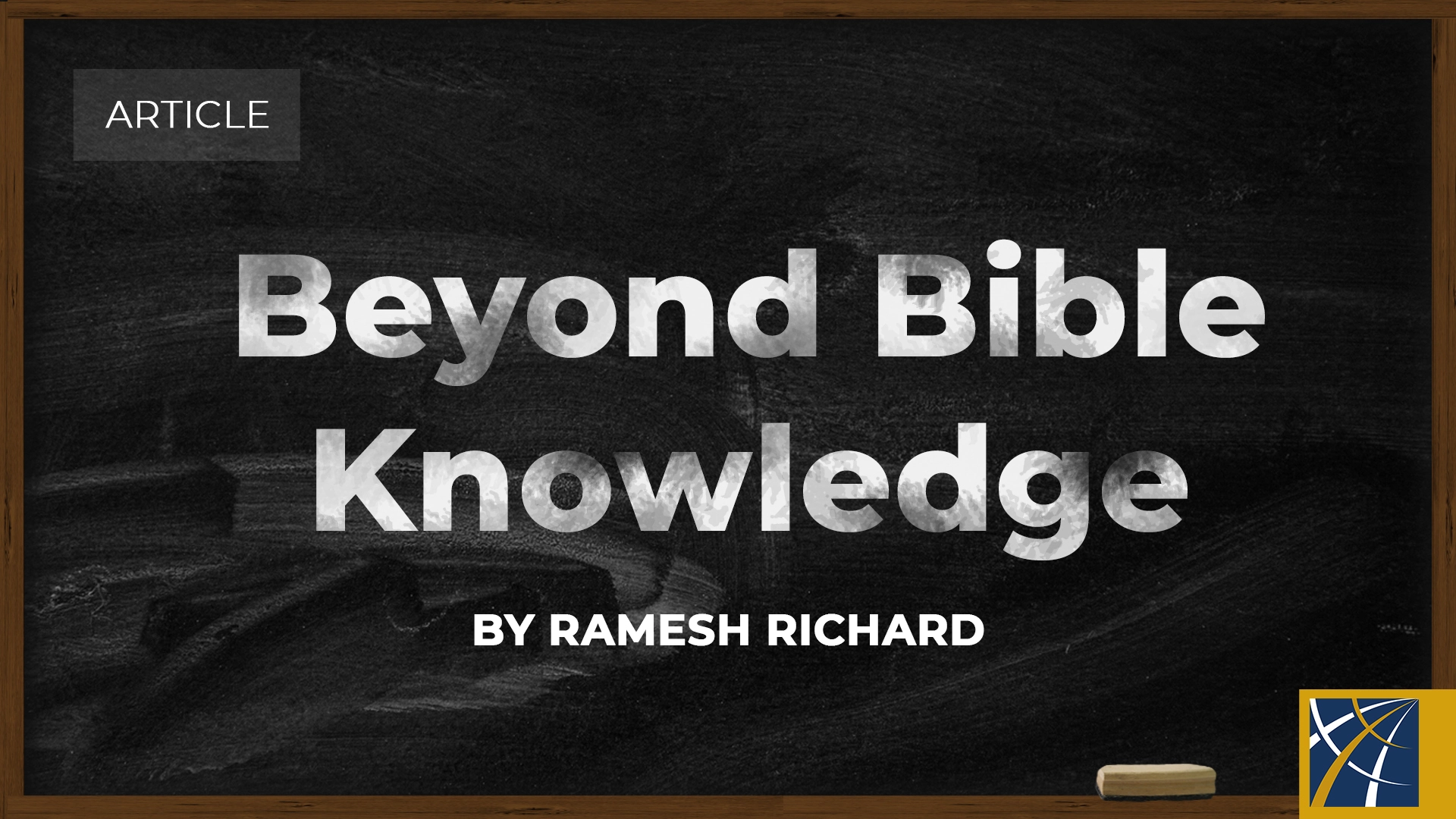April 2011
by Ramesh Richard
Leadership—an abstract concept applied daily in a dozen contexts—needs direction more than definition. On the hazardous path from idea to execution lay many an unexpected explosive device. Yet, in spite of the loneliness and dangers of leadership, the sensing and seizing of opportunities brings its own rewards: honor to God, changed lives, and realized objectives. Given the highs and lows of the position, it’s easy for leaders to confuse their identity as a leader with the role of leader—to think of their leadership in the “first person.” I’d like to propose a better way: a third person view of the leader.
I am Not My Role
First, I am neither the subject nor object of leadership. Therefore, I must distance myself from leadership as a position. I can refer to myself in first person, but must attribute third person status to the role. The gift of leadership (Rom. 12:8) has been given as a grace (Rom. 12:6), not grabbed in a power play. Hence, my self-identity cannot be drawn from title or rank. Leadership fulfills a critical function like every other role in an organization. There is no ontological distinction between leader and followers, just a functional one. Just as many serve their various necessary roles, I serve as leader.
My Leadership Depends on God’s Spirit
Second, a third person view of the leader points me to the Third Person of the Trinity as my leadership source, and sufficiency. While I am not incompetent—that can be addressed by training and experience—I acknowledge my inadequacy in the role regardless of innate talent or external recognition. Hence, my first leadership responsibility is to think—prayerfully think—about the dimensions and expectations of my service. Only then will Spirit-led wisdom, character, favor, authority, discernment, attitudes, reactions, innovation and implementation empower me to serve effectively as a leader.
I am an Instrument
Finally, I am really, but merely, an instrument in this third person view of the leader. Bearing in mind that my leadership function is not by accident, I will not be neglectful and negative, passive and ad-hoc in my service as leader. However, I will not assume the role of deity over the organization, or in the lives of people. This instrumental view assures me that I am less than God, the Creator and Maker of human and organizational change. God is The(ir) Leader. People may follow me as I follow Him. I am a third person in the equation, serving between God and people. I minister right in the middle as God’s leadership instrument to interpret reality for the organization, and I “stand before” (that’s the literal translation of the Greek word for leader in Romans 12:8) followers, and lead them to a purpose.
I welcome you, especially leaders among our readers—whether in family, church, business, government, or organization—on this challenging and rewarding journey of grace-gifted service. Leadership is not about us. But it is through us. Would you subscribe to a third person view of the leader—intentional and instrumental, never incidental—in this critical service role?






